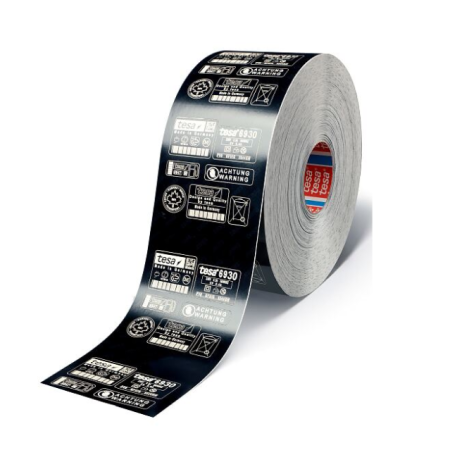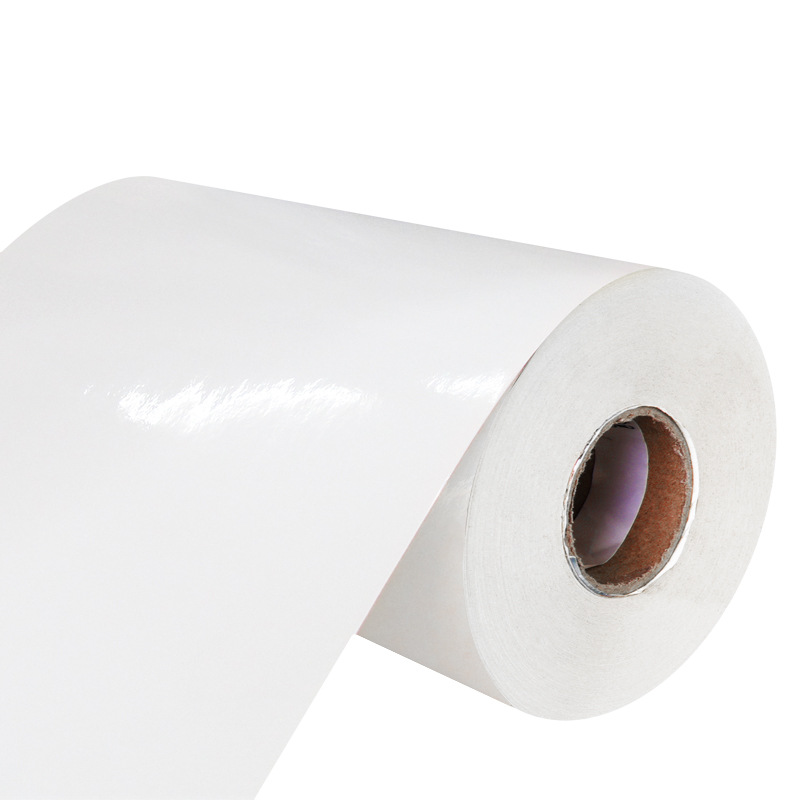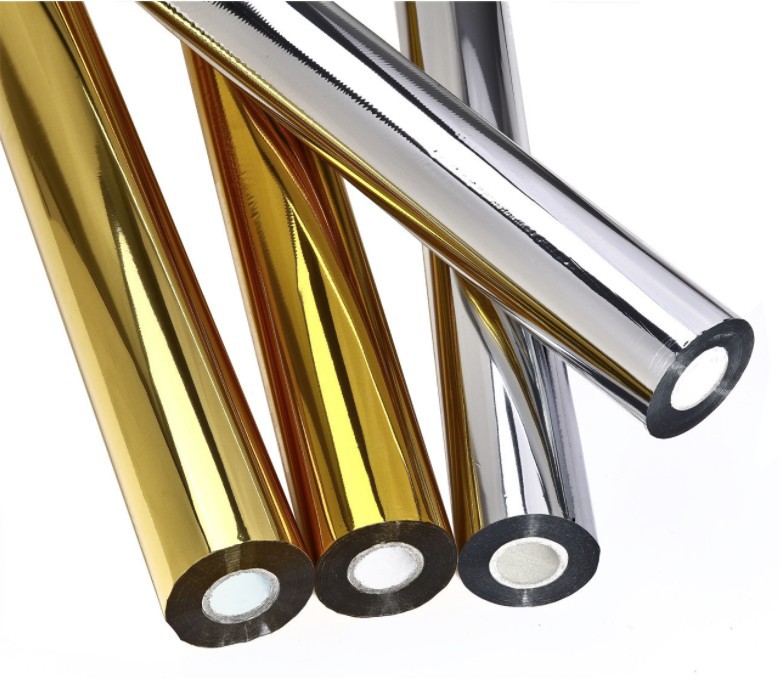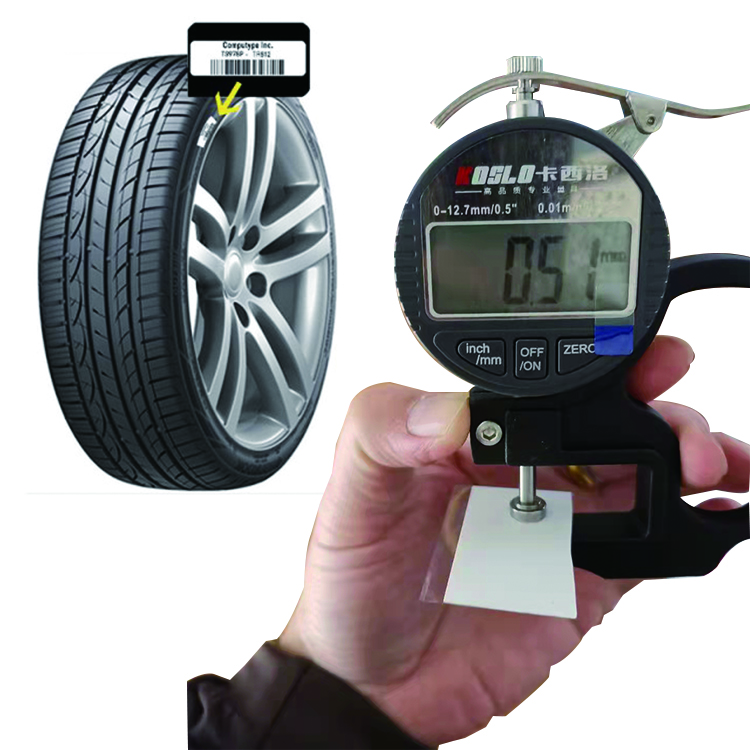PVC adhesive label
Craftsmanship: Film covered die-cutting and waste disposal
Advantages: Non flammability, flexibility, shrinkage and opacity, resistance to water, oil and chemicals, etc
Disadvantages: Poor thermal stability and light resistance of PVC
Applicable scenarios: Pure water bucket stickers for daily necessities, health products, cosmetics, etc
What is the difference between PVC material and copperplate paper?
Copperplate paper is paper, while PVC is a chemically synthesized material, also known as film. It is impossible to compare items that are not of the same type. PVC, in layman's terms, is plastic paper. It is said to be paper, but in fact it is plastic. Copperplate paper, on the other hand, is just paper with a glossy coating on its surface
1. PVC material and copperplate paper have different uses:
1. The use of PVC material: It can be used to make anti-corrosion pipes, fittings, oil pipelines, centrifugal pumps, blowers, etc. The rigid board of polyvinyl chloride is widely used in the chemical industry to make lining for various storage tanks, corrugated boards for buildings, door and window structures, wall decorations and other building materials. Due to its excellent electrical insulation performance, it can be used in the electrical and electronic industries to manufacture plugs, sockets, switches, and cables
2. The use of copperplate paper: It is widely used for printing pictorials, advertisements, landscape paintings, exquisite calendars, portraits, etc
Secondly, the characteristics of PVC material and copperplate paper are different:
1. The characteristics of PVC material: PVC is completely non-toxic and odorless, without any irritation to human skin or respiratory system. For those who are allergic to wood and paint, furniture or kitchenware packaged with PVC film is very suitable
By using PVC film as decorative film, people can largely avoid using medium density board, particleboard, plywood, and fiberboard, reduce the amount of wood used, and thus reduce the damage to forests and even the environment
2. The characteristics of copperplate paper: Copperplate paper is characterized by a very smooth and even surface, high smoothness, and good glossiness. Because the whiteness of the coating used is over 90%, and the particles are very fine, and it has undergone super testing; The smoothness of copperplate paper is generally 600-1000s due to the calendering process
At the same time, the coating is evenly distributed on the paper, presenting a pleasing white color. The requirements for copperplate paper are high coating strength, thin and uniform coating, no bubbles, appropriate amount of adhesive in the coating to prevent paper from powdering and shedding during the printing process. In addition, copperplate paper should have appropriate absorption of xylene and be suitable for fine mesh printing of 60 lines/cm or more
3. PVC material and copperplate paper have different raw materials:
1. Raw materials for PVC materials: PVC material, also known as polyvinyl chloride, is a white or light yellow powder of polyvinyl chloride resin that cannot be used alone and needs to be modified
2. The raw material of copperplate paper: Copperplate paper, also known as printing coated paper. Apply a layer of white coating on the surface of the base paper, which is processed by extrusion. There are two types: single-sided and double-sided, and the paper surface is divided into two types: glossy and textured
What are the specific types of PVC adhesive materials?
PVC adhesive material, like PET adhesive, is also a type of polymer material. The common colors of PET materials include matte silver, bright silver, bright gold, sub white, bright white, sub black, and bright black. Unlike it, PVC adhesive materials come in a wide variety of colors, which can be said to be colorful. Let's get to know each other in detail together.
The common colors of PVC label materials include sub white, pearl white, and transparent. PVC adhesive and PET adhesive labels have similar performance, with better flexibility and a soft touch than PET label paper. They are often used in high-end occasions such as jewelry, watches, electronics, and metal industries. However, the degradation of PVC label materials is poor, which has a negative impact on environmental protection. Some developed countries abroad have begun to develop alternative products in this area.
PVC (polyvinyl chloride) has two types: soft and hard, with good durability, tear resistance, flexibility, and chemical corrosion resistance. It is widely used in electronics, machinery, batteries, and outdoor applications. But the temperature resistance and tensile strength are generally average, and there will be a certain degree of shrinkage under the influence of temperature. Easy to tear off when stretched. Due to environmental restrictions, indoor use is becoming increasingly rare.
The commonly used thickness of PVC is 80u, and different adhesives can be used according to different application needs. There are water-based glue, hot glue, oil-based glue, removable glue, etc. The base paper can be paired with Grassin base, white thick base, etc.
PVC self-adhesive label
The temperature resistance range of general PVC labels is -10℃ to +60℃, with a minimum label application temperature of 10℃;
For high-adhesion PVC labels, the temperature resistance range is -20℃ to +80℃, with a minimum label application temperature of 7℃;
High-temperature PVC labels have a temperature resistance range of -20℃ to +280℃ (withstanding 280℃ for 10 minutes and 320℃ for 10 seconds), and a minimum label application temperature of 7℃;
Ultra-low temperature PVC labels have a temperature resistance range of -196℃ to +165℃, with a minimum label application temperature of -40℃.
What adhesive materials should be used for durability labels?
Durability labels refer to labels that remain on objects for a long time without falling off. The surface adhesive material of the label requires good weather resistance and toughness, and the adhesive agent requires high bonding strength and durability. Thin film materials are usually the preferred choice for durability labels
1. PET Adhesive Material
The commonly used thicknesses are 25um and 50um, and the colors include bright white, matte white, transparent, and metalized bright silver, bright gold, matte gold, and matte silver
The characteristics of PET adhesive material are as follows
a. The material has high hardness, tensile strength, and tear resistance
b. Excellent high temperature resistance, capable of withstanding temperatures up to 150 ℃
c. Excellent durability
d. Excellent transparency, opacity, and good metallization properties
e. Good chemical corrosion resistance, suitable for outdoor use, and widely applicable
2. PVC Adhesive Material
It is softer and more stretchable than PET material, with a thickness generally above 80um and 100um. The commonly used colors are white and transparent
The characteristics of PVC adhesive material are as follows
a. Good weather resistance, suitable for outdoor use
b. The application temperature range is between 20~80 ℃, and it is not resistant to high temperatures
c. Very good durability and chemical corrosion resistance
d. Due to its good flexibility, it is suitable for application on various types of surfaces
3. Synthetic paper adhesive material
It is a new type of synthetic material with the common characteristics of film and paper, with a thickness of over 60um and generally only white
The characteristics of synthetic paper adhesive materials are as follows
a. Has excellent tensile and shear strength
b. It has printing adaptability similar to paper and is suitable for printing with various inks
c· Good durability and corrosion resistance, suitable for outdoor use
d. Widely applicable and can replace various metal signs
We offer comprehensive technical support, including free professional labeling solutions, advice on label materials and adhesive selection, as well as online/offline assistance from professional software and hardware engineers. Service email: andy@ownlikes.cn. In pre-sales, we leverage our extensive experience in specialty labeling projects to provide clients with the most suitable hardware solutions. Additionally, all our label barcode printers and scanners come with a three-year free warranty, demonstrating our confidence in our products.






This site is protected by reCAPTCHA and the Google Privacy Policy and Terms of Service apply.